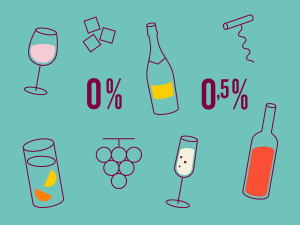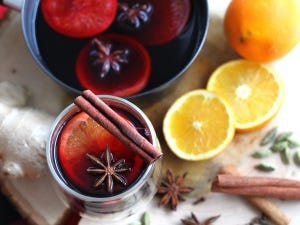What on earth are animal products doing in wine?!
It’s a good question to ponder while sipping on your glass of this delicious grape nectar…
I mean, why would your wine contain animal products?
It’s wine’s visual aspect that often spurs winemakers to use animal origin proteins. If a wine appears to be very clear, that’s often the result of something called “fining”, a process that removes solids. Fining products adhere to tiny floating particles, and allows those particles to be filtered out of the liquid. This makes the wine clearer to the eye, and makes it more stable from a microbiological perspective.
Fining products are of various origins. There are those that are mineral (bentonite or silicon dioxide), vegetable (made from peas, potatoes, or wheat), or animal. In the latter case, you could be unknowingly drinking milk proteins (casein), egg whites, or fish fins, cartilage, or bladder. Milk and egg whites might be passable for those who eat vegetarian, they are not suitable for vegans. Even if the wine you pour from a bottle no longer contains the actual animal proteins themselves, the fact of their use makes it a no-go for dedicated vegans.
What’s in your wine?
How do you figure out which wines conform to the principles of veganism? Overall, the winemaking industry isn’t uniform in its indication of vegan and non-vegan wines, but some wines bear a small vegan-friendly sticker or tag. If a wine proudly proclaims that it’s non-fined, then you can be sure that it’s also vegan—because it’s during the fining process that any animal proteins are introduced. You can also consult winemakers themselves, estate websites, or have a look at a wine’s technical specification or data sheets, but beware, most wine data sheets are not easy read.
That’s where the Internet comes in! There are sites dedicated to uncovering and savouring the best vegan wines, like barnivore.com. There are a good quantity of wines available vegans—and there are even some delightful surprises. Of course, in-store SAQ advisors are always ready to help you pick a bottle that will pair perfectly with your meal and lifestyle.
Organic isn’t always vegan
There’s one last thing to bear in mind when you’re searching for your favourite vegan wine: just because it’s organic doesn’t mean it’s vegan. Some certified organic wines are allowed to use animal protein fining products, and even Demeter (website in French only) Biodynamic certification allows winemakers to use casein. Only natural wines are sure to not contain animal products because they haven’t been fined or filtered—but even this comes with a caveat. Since natural wines have no official certification body governing their designation, you really need to research your wine selections one by one to ensure they suit your dietary concerns.
Just to keep things interesting, that bottle of wine that’s always been your favourite might be vegan after all. If it hasn’t been filtered or has only used mineral or vegetable proteins, there’s no reason why wines produced using traditional agricultural means aren’t vegan—even if they’ve have used pest control when growing grapes.
Here’s a few suggestions
Related Posts
-
Read more
Its versatility has made it one of the most popular spirits in the world. Vodka lovers, learn more about its origins, traditions, and possible food and drink pairings.
-
Read more
Start the new year on the right foot with our Top 20 wines taken from four wine guides written by your favourite contributors. Whatever your taste, budget, or occasion, we have a wine for you!
-
Read more
Pop the bubbly and discover the perfect pairings for each taste tag!
 Access to SAQ Inspire personalized services and store inventories are unavailable at the moment.
Access to SAQ Inspire personalized services and store inventories are unavailable at the moment. Free in-store delivery with purchases of $75+ in an estimated 3 to 5 business days.
Free in-store delivery with purchases of $75+ in an estimated 3 to 5 business days. 













